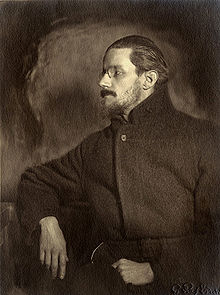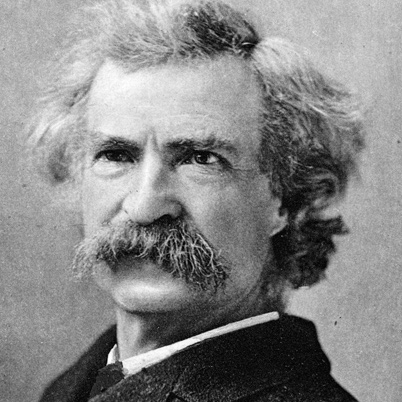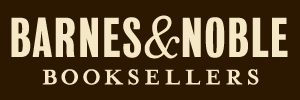-
How to Become an Intellectual is at once a
how-to manual and a glib walk through several thousand years of science and culture, complete with cameo appearances by everyone from Plato and Socrates to Freud and Marie Curie.
Available April 2012 in bookstores, as well as
on-line.
Joyce and the Dangers of Fame
October 10, 2012

Although they would likely profess otherwise (at least in public), many an intellectual thirsts for some degree of fame and fortune. Who wouldn’t want their books to earn millions, or to step into an auditorium crowded with cheering fans?
But fame and fortune can also have a downside—and no, just not hangovers and a creeping sense that you’ve sold your intellectual fire for a fat bank account. Fintan O’Toole’s review of Gordon Bowker’s James Joyce: A New Biography in the recent New York Review of Books describes an altogether different hazard attendant to renown: that your message, thoughts—everything that made you famous in the first place—can end up drowned out in all the applause.
O’Toole suggests that such a thing happened to Joyce:
“It was good, of course, that one of the greatest of Irishmen was at last being honored in his own country, and especially in the city that was, even after he left it for the last time in 1912, his imaginative universe. But Joyce really is dirty and scandalous. Those precious pages, for each of which the Irish government paid around $30,000, stink of flesh, ordure, and bodily fluids. They are steeped in forbidden thoughts and dishonorable desires, in secrets, blasphemy, and sex. They were not made to become holy relics.”
Joyce, of course, didn’t live to enjoy such widespread accolades (quite the opposite, in fact, at some points). But in O’Toole’s view, fame is having a detrimental posthumous effect on someone (he argues) who stands as one of the most ribald intellectuals of all time.
Just in Time for Back to School
September 17, 2012
Just in time for back-to-school season: a few tips and tricks from the book on becoming (or at least aspiring to become) a well-rounded thinker of the old school. Featuring cameos by T.S. Eliot and a koala frozen stiff as a popsicle. (Yeah, that second thing makes perfect sense in context.) Check it out here.
On a totally unrelated note, a thoroughly touching letter from poet Ted Hughes to his son about “inner armor.” Lengthy but well worth checking out. (Originally posted at Brain Pickings – thanks GB.)
The Lesson in That Whole Vidal-vs.-Mailer Thing…
August 6, 2012
A new HuffPo piece (adapted from a Maxim in the book) attempts to draw a somewhat practical lesson from the infamous Gore Vidal-vs.-Norman Mailer feud of a couple decades ago.
RIP Gore Vidal
August 2, 2012
Gore Vidal was the last of a generation of literary lions who attempted—sometimes with spectacular success, but also a healthy amount of failure—to broaden the possibilities of fiction and nonfiction. In contrast to the usual stereotype of intellectual-as-wallflower, Vidal was also famous for being a literary brawler of the first order: witness this pleasant little conversation between him and William F. Buckley Jr.:
http://www.youtube.com/watch?v=nYymnxoQnf8
Or this equally notable brawl between Vidal and Mailer (which is mentioned in Intellectual’s Maxim 95):
The intellectual life: it’s not for wimps.
A Little Something in Honor of the Olympics
July 30, 2012
“Physical fitness is not only one of the most important keys to a healthy body; it is the basis of dynamic and creative intellectual activity. The relationship between the soundness of the body and the activities of the mind is subtle and complex. Much is not yet understood. But we do know what the Greeks knew: that intelligence and skill can only function at the peak of their capacity when the body is healthy and strong; that hardy spirits and tough minds usually inhabit sound bodies.”
– John F. Kennedy, 1960
When *Not* to Quote the Bard
July 24, 2012
The latest HuffPo book excerpt discusses how a little bit of Shakespeare can go a long way. Are his phrases timeless? Absolutely. Can they imbue even the most mundane conversation with an added layer of profundity and/or pretension? Of course. But after centuries of heavy use, some of ol’ Billy’s best quotes have become a little threadbare, at least as conversation-enhancers. Look to Christopher Marlowe and others for equally powerful (but less commonly used) bon mots.
Great Moments in Intellectual Discourse #7
June 19, 2012

“‘Classic’ – a book which people praise and don’t read.”
– Mark Twain (1835-1910), writer of many (well-read) classics, including Adventures of Huckleberry Finn.
Huffington Post Columns
June 7, 2012
How to Become an Intellectual has a small but growing presence on The Huffington Post, thanks to a new series of columns/excerpts. Those bite-size pieces of intellectualism include “Read and Comprehend (Nearly) Everything,” “Follow Museums Like Others Follow Sports Teams,” “Cast LOL and Emoticons From Your Lexicon,” and a few more. Comments encouraged.
Zadie Smith Wants You to Save Your Library
June 3, 2012
“A library is one of those social goods that matter to people of many different political attitudes.”
– from Zadie Smith’s excellent (and rather lengthy) new piece on The New York Review of Books’ blog, titled “The North West London Blues,” about the importance of libraries as social spaces and a community’s glue. It should be required reading for anyone who argues that libraries, with their neat shelves of printed matter, are obsolete in an era where most written knowledge is discoverable online with a few search queries and mouse-clicks. But as Smith discusses in the article/post, politicians are using exactly that argument to cut library funding as part of austerity movements on all levels of government – causing potentially enormous damage to what she calls “a significant part of our social reality.”
Great Moments in Intellectual Discourse, Continued
May 29, 2012

“An intellectual says a simple thing in a hard way. An artist says a hard thing in a simple way.”
– Charles Bukowski (1920-1994), one of those writers who could spin an enduring bit of prose or down seventeen shots with equal aplomb. Keep that quote in mind the next time someone introduces themselves as both an intellectual and an artist.



